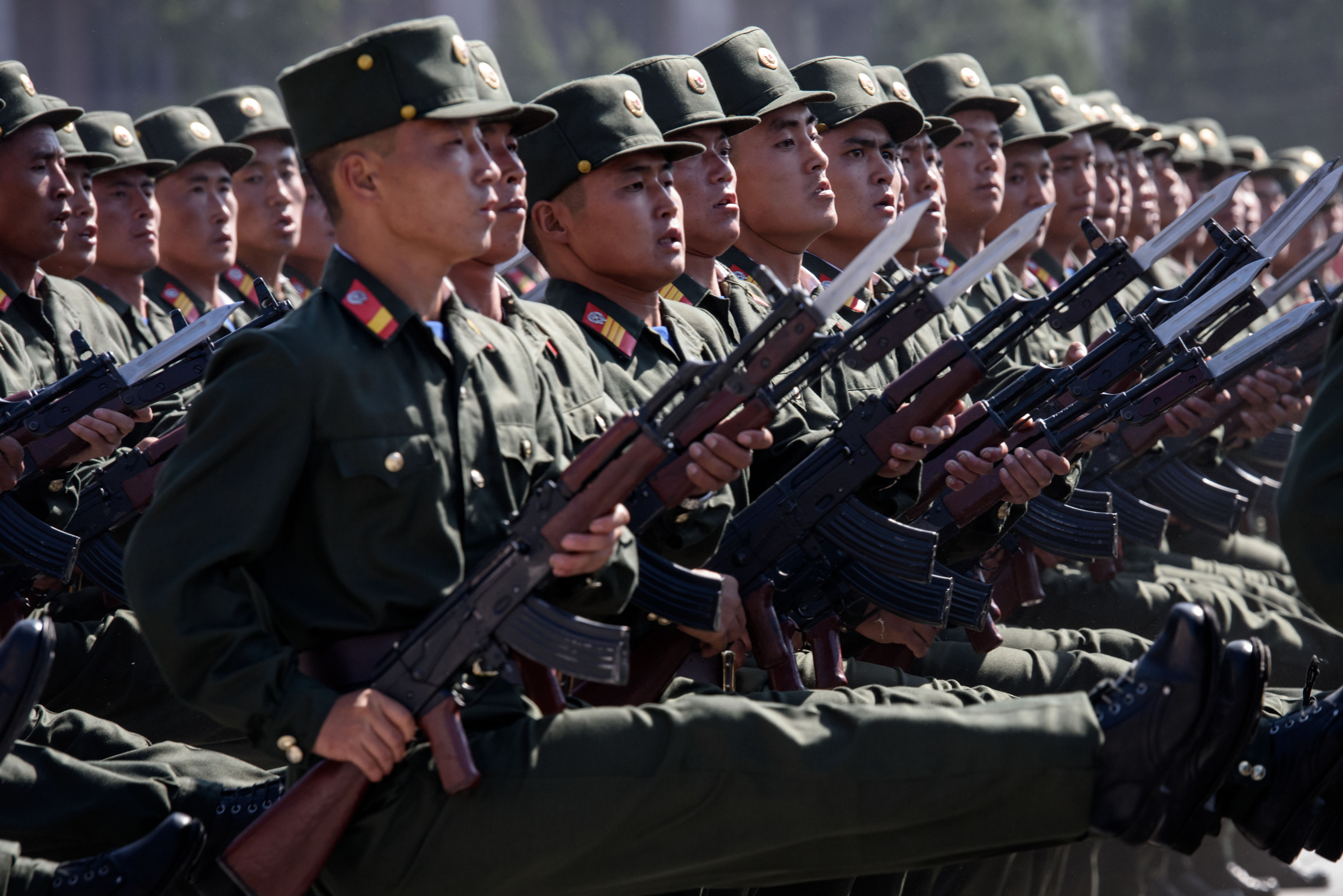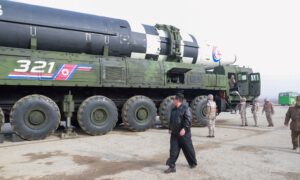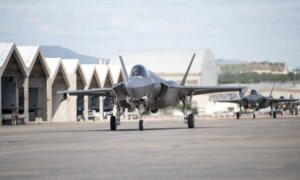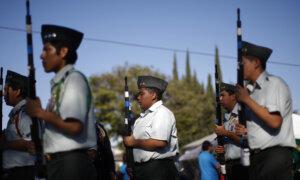Commentary
North Korea is reportedly sending up to 100,000 troops to support Russia in its war against Ukraine, with more than 10,000 already deployed. Although sending troops might help Russia, this is a risky gamble for Kim Jong Un that could spell disaster for North Korea.
North Korean troops haven’t seen foreign combat since the Korean War ended in 1953. The brief training provided by Russia—just a few weeks—isn’t enough to prepare them for modern warfare. They lack experience with current military tactics, especially involving drones and electronic warfare, which could lead to disastrous results on the battlefield.
Ukraine’s flat terrain vastly differs from North Korea’s mountains, adding to the challenges. Language barriers and cultural differences make coordination with Russian forces difficult; reports indicate that there is only one translator for every 30 soldiers.
Soldiers from North Korea are also equipped with outdated weapons such as 60 mm mortars, AK-12 rifles, and basic anti-tank missiles, which are ineffective in today’s high-tech warfare dominated by precision strikes and advanced surveillance.
On Nov. 6, the Ukrainian Defense Ministry reported that Russian casualties have exceeded 700,000, with more than 1,300 losses in a single day. If North Korean troops face similar conditions, their lack of experience could lead to even higher losses.
U.S. officials reported that North Korean troops clashed with Ukrainian forces for the first time on Nov. 4 in Russia’s Kursk region, with casualties unknown.
Russia’s plan likely starts with securing the Kursk region—where Ukrainian forces have been advancing since August—before moving into Ukraine. In response, the Biden administration is allowing deeper strikes into Russian territory using U.S.-made weapons and intends to provide maximum aid to Ukraine before President-elect Donald Trump takes office.

A member of Ukraine's 72nd Brigade Anti-air unit points to the direction of a Russian Zala reconnaissance drone sighted overhead as they prepare to fire a Strela-10 anti-air missile system near Marinka, Ukraine, on Feb. 23, 2024. (Chris McGrath/Getty Images)
Despite the dangers, Kim sees an opportunity. Pyongyang is trading outdated weapons and the lives of its soldiers for cash, technology, and a Russian promise for mutual defense. Reports suggest that Russia has agreed to pay $2,000 per month for each North Korean soldier—a sum likely to go directly to the regime.
With more than 10,000 troops deployed, North Korea could earn more than $200 million per year. Russia has also promised to supply 600,000 to 700,000 tons of rice annually, addressing about 20 percent of North Korea’s food shortages.
North Korea is also seeking Russian assistance in developing tactical nuclear weapons, missiles, and military satellite technology. Although it’s not certain that Russia will follow through, the partnership increases North Korea’s chances of obtaining advanced military capabilities. The regime hopes to gain firsthand experience of modern warfare and test its weapons against Ukraine’s Western-supplied arsenal.
However, the costs are immediate and serious. If North Korean troops are used in mass assaults—a tactic from the Korean War—they might not last more than a few weeks.
At home, this move could spark unrest. In North Korea, all men aged 17 to 30 must enlist for military service, with nearly a third of the population actively serving. These soldiers are people’s husbands and children. Reports suggest that Kim is trying to prevent families from learning about the soldiers’ deployment, but these efforts haven’t been entirely successful.
The harsh realities of war might demoralize North Korean troops, leading some to defect. Ukraine has initiated a program called “I Want to Live,” offering defectors food, shelter, and safety. South Korea is considering sending personnel to assist Ukraine, which would provide more defection incentives to North Korean soldiers who would have more exposure to uncensored information about the world and the war.
If Moscow doesn’t support wounded or killed North Korean soldiers, it could exacerbate the situation.
Internationally, North Korea risks straining its relationships. Pyongyang’s strategic value to Moscow could diminish if Russia continues to struggle in the war despite North Korean support. Additionally, North Korea’s actions could strain its ties with China, its most important ally, further complicating its position on the global stage.
While North Korea hopes for Russian support in future conflicts on the Korean Peninsula—following their recent mutual defense pact—this support heavily depends on the outcome of the war in Ukraine. The high costs in lives and potential political instability could outweigh any uncertain benefits.
In international politics and warfare, miscalculations can have serious consequences—a reality that North Korea may soon have to face.















